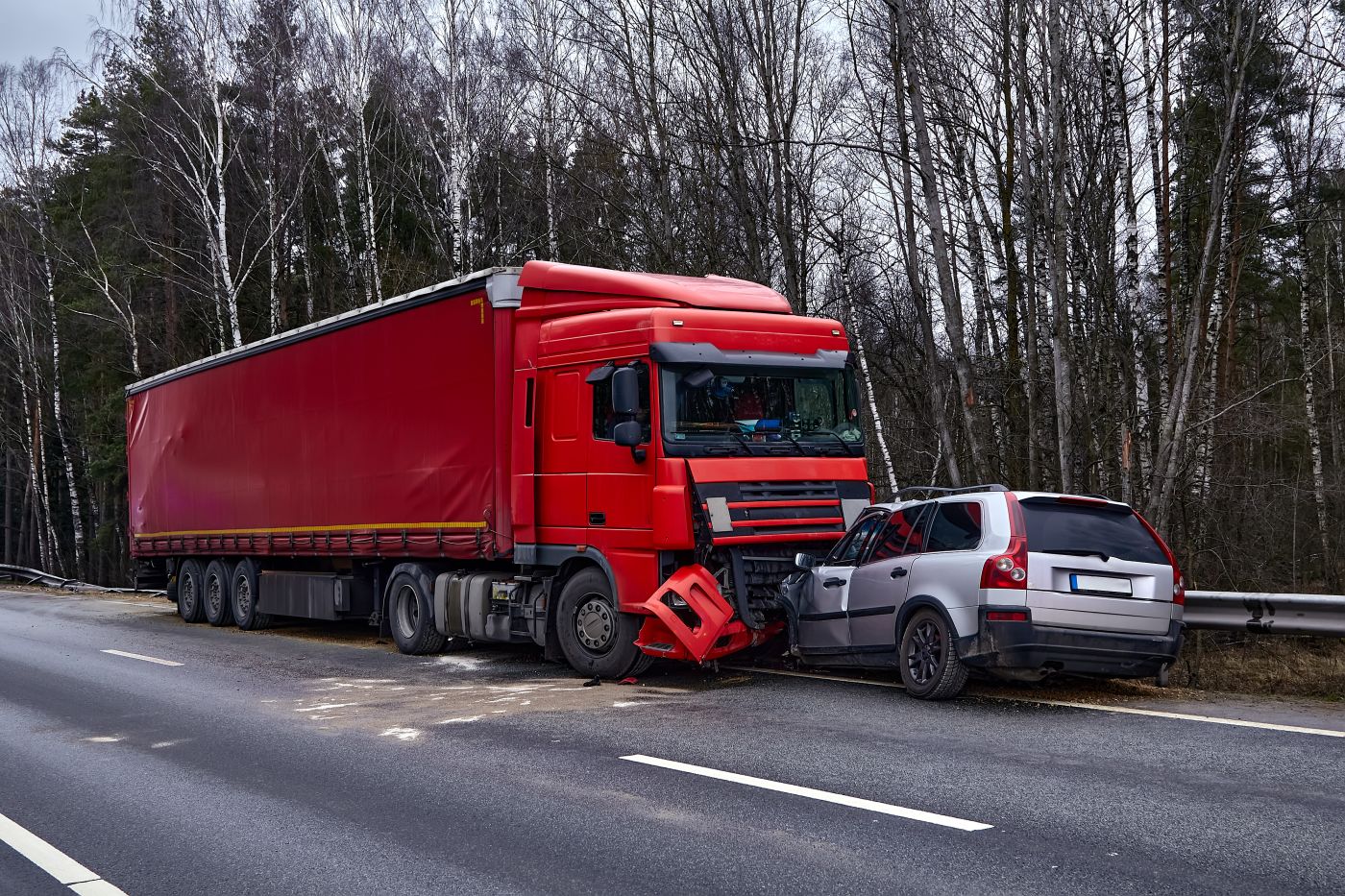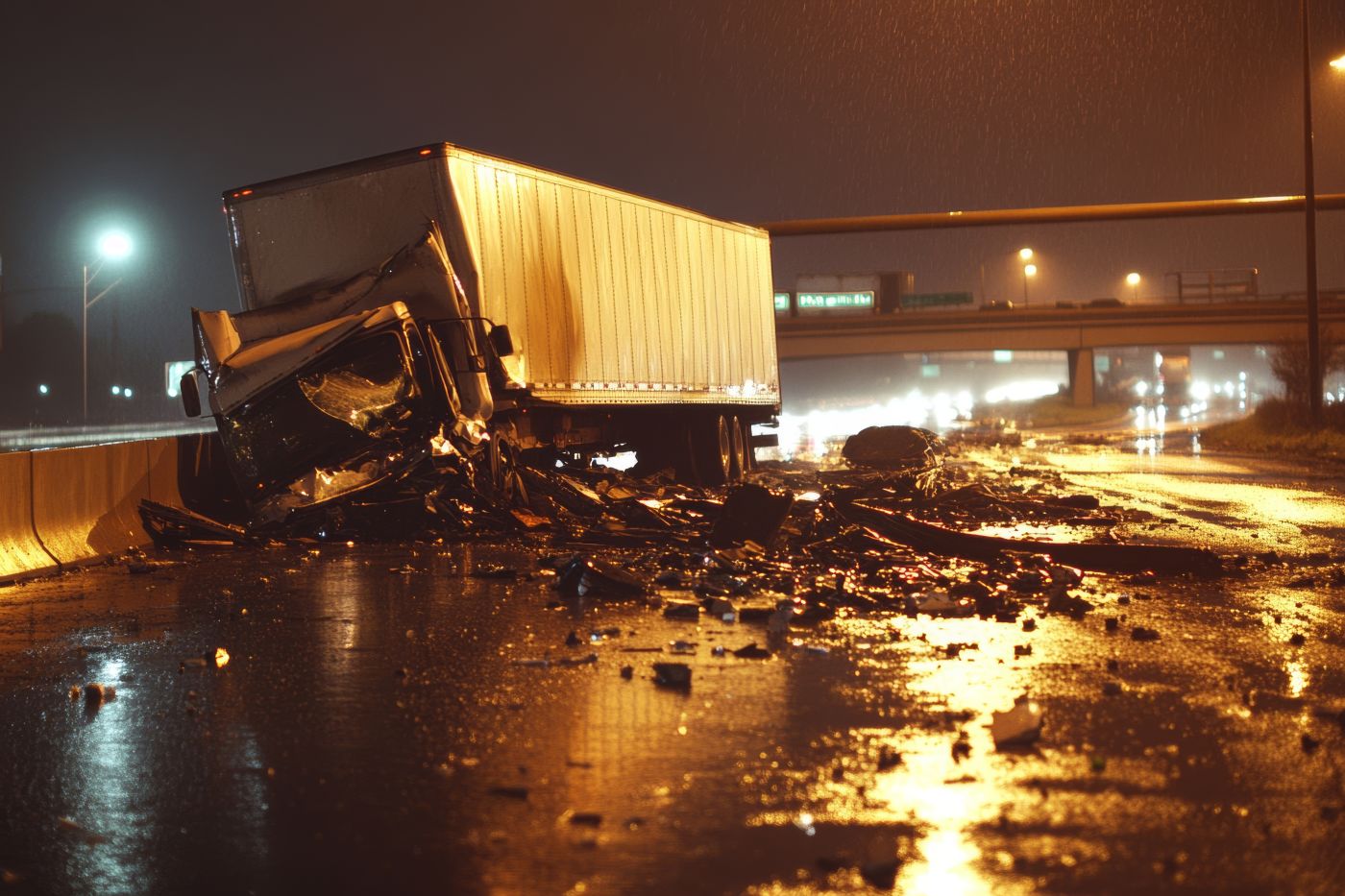
Taking action immediately after a trucking accident can make all the difference in your recovery and your legal case. From seeking medical attention to gathering evidence, knowing what to do—and what not to do—is critical.
At Harris & Hart Attorneys at Law in Overland Park, Kansas, the attorneys know how devastating a trucking accident can be. Their goal is to help individuals who’ve been hurt take the right steps to protect their rights and secure the compensation they’re entitled to.
As a personal injury attorney firm, they're here to guide you through each stage after a crash. Read on to learn the most important steps to take after a trucking accident and how we can help protect your future.
Get Medical Attention Right Away
Your health and safety should always come first. Even if you feel fine after the crash, it’s still a good idea to get checked out by a doctor. Trucking accidents involve more force than a typical car crash, which can cause hidden injuries.
Medical records are one of the most powerful pieces of evidence in a personal injury case. They show the type of injury, the timing, and the connection to the crash—helping your personal injury attorney build a stronger case.
If you’re unsure whether to go to the hospital, err on the side of caution. Early documentation can make or break your claim and sets the stage for everything that follows.
Contact Law Enforcement and File a Report
After a trucking accident, always call the police—even if the crash seems minor. A police report can become a vital piece of evidence when dealing with trucking companies or pursuing a lawsuit.
The responding officer will document the scene, interview witnesses, and make initial findings regarding fault. These observations carry weight and can help your personal injury attorney argue your side later on.
In many states, failing to report a crash involving a commercial vehicle can even be a violation of the law. Don’t risk missing this important step by assuming everything will sort itself out later.
Before the officer leaves, ask how to get a copy of the report. This document typically includes contact information, insurance details, and a basic diagram of the accident—useful for future reference.
Gather as Much Evidence as Possible
Truck accident scenes can become chaotic fast, especially with emergency responders and cleanup crews arriving. Still, if you’re able to do so safely, start collecting evidence right away.
Photos can show the condition of vehicles, skid marks, debris, and road conditions. Witness statements taken early are often more accurate than those gathered weeks later.
Surveillance footage from nearby businesses may also capture important details. A personal injury attorney can help request this footage quickly before it’s deleted.
Try to write down everything you remember about the crash while it’s fresh. This includes what you saw, what was said, and how the truck driver behaved before and after the accident.
Speak With a Personal Injury Attorney Early
Trucking companies act fast after a crash—and you should too. Their lawyers may begin working to shift blame or limit their liability within hours of an accident.
Having a personal injury attorney on your side early can help level the playing field. The attorneys at Harris & Hart Attorneys at Law in Overland Park, Kansas, know how devastating a trucking accident can be. Their goal is to help individuals who’ve been hurt take the right steps to protect their rights and secure the compensation they’re entitled to.
As a personal injury attorney firm, they step in to protect your rights, communicate with opposing parties, and preserve critical evidence before it disappears. The sooner they get involved, the easier it is to identify who’s responsible, whether that’s the truck driver, their employer, a manufacturer, or a third-party maintenance provider.
They can also help calculate the full value of your claim, including long-term costs like future medical care or lost earning capacity.
Identify All Liable Parties
Truck accidents often involve more than just the driver. Several people or companies may share fault, and identifying them all can make a big difference in your case.
Some possible liable parties include:
The truck driver: If they were speeding, distracted, or under the influence, they may be directly responsible for the crash.
The trucking company: If the company failed to screen, train, or supervise the driver properly, they may be held liable.
A parts manufacturer: If a faulty brake system or tire blowout caused the accident, a defective product may be to blame.
Maintenance contractors: Neglecting basic maintenance, such as tire rotations and brake checks, can lead to mechanical failure and serious wrecks.
Cargo loaders: Improperly loaded or unbalanced cargo can affect a truck's handling, potentially causing rollover or jackknife accidents.
Each party may have its own insurer and legal counsel, making claims more complicated. That’s why working with a personal injury attorney who understands these issues is essential as your case moves forward.
Keep Track of All Deadlines and Legal Requirements
Every state has a statute of limitations that sets a deadline for filing a personal injury claim. Missing this deadline can mean losing your right to recover anything at all.
Besides the statute of limitations, there may be other deadlines to file certain insurance claims or reports. A personal injury attorney can help you keep everything on track.
Some evidence, such as truck maintenance logs or electronic logging device data, may only be retained for a limited time. Acting fast helps preserve this information before it disappears.
Meeting legal deadlines also shows the insurance company and opposing counsel that you’re taking the matter seriously, which can influence how they handle your case.
Preserve All Records and Documentation
Keeping good records is a key part of building a strong case. Everything from your hospital bills to repair estimates can help prove your losses.
Some essential types of documentation include:
Medical records and treatment notes: These show the nature and extent of your injuries.
Receipts and invoices: Costs for out-of-pocket expenses like medication, rideshare services, or medical equipment should all be saved.
Pay stubs and tax documents: These help show how much income you’ve lost if you’ve had to miss work.
Photographs and videos: Visual documentation from the scene or your injuries can make a big impact.
Journals or notes: Tracking how the injury affects your daily life can support claims for pain and suffering.
Staying organized with this paperwork makes it easier for your personal injury attorney to prepare a detailed and well-supported claim. Once your documentation is in order, the next step is to think about the financial impact of the crash.
Review the Full Value of Your Claim
It’s not just about the emergency room bills. Truck accident injuries often come with long-term consequences that aren’t always obvious right away. A personal injury attorney can help calculate both economic and non-economic damages. These include:
Medical expenses (current and future)
Lost wages and reduced future earning potential
Physical therapy or rehabilitation costs
Pain and suffering
Loss of enjoyment of life or emotional trauma
Estimating future costs is complicated but crucial. Without professional help, many victims settle for far less than they’ll need to cover ongoing care.
Be Aware of Comparative Fault Rules
In many states, your share of fault can reduce the amount of compensation you receive—or prevent you from recovering anything if you're mostly at fault.
For example, if you're found 20% at fault, your damages may be reduced by 20%. If you're more than 50% at fault, you may be barred from recovery altogether.
Trucking companies often try to shift blame onto the injured person. That’s where having a skilled personal injury attorney comes in—they can push back on unfair accusations and fight for your full recovery.
Follow Your Treatment Plan Closely
Once you begin medical treatment, stick with it. Skipping appointments or ignoring medical advice can damage your credibility and affect your case.
Opposing parties may argue that you must not be hurt if you’re not following through on care. This can reduce the value of your personal injury claim significantly.
It’s also important to keep your doctors informed about any new symptoms or complications. Honest, up-to-date medical records reflect the ongoing nature of your injuries.
Staying consistent with care not only improves your physical recovery but also strengthens the evidence for your personal injury attorney to present.
Prepare for a Possible Lawsuit
While many truck accident claims settle outside of court, not all do. Sometimes the only way to get fair compensation is by filing a lawsuit and preparing for trial.
A personal injury attorney will help you understand the pros and cons of taking your case to court. If the trucking company refuses to make a reasonable offer, litigation may be necessary.
This process can involve discovery, depositions, expert testimony, and court appearances. But don’t worry—your attorney handles most of the heavy lifting. Even if you’re hoping for a quick settlement, it’s helpful to be prepared for trial.
Dedicated Legal Support
If you’ve been involved in a trucking accident, don’t wait to protect your rights. The attorneys at Harris & Hart Attorneys at Law are ready to help you secure medical care, gather evidence, handle aggressive insurance companies, and seek the justice you deserve.
They serve clients throughout Kansas and Missouri. Contact them today to speak with an experienced personal injury attorney who will stand by your side every step of the way.



